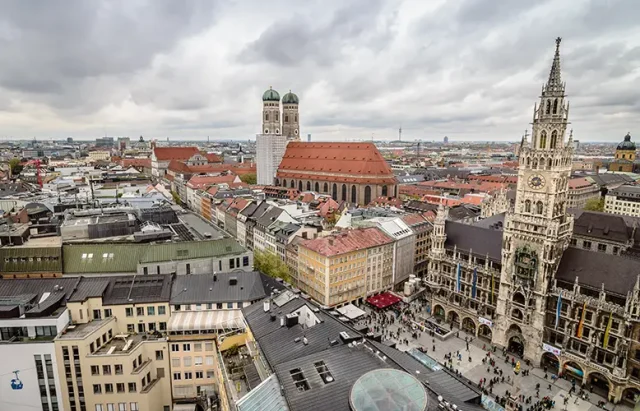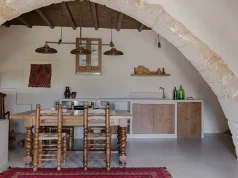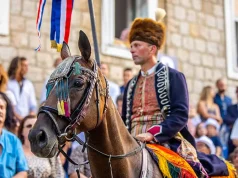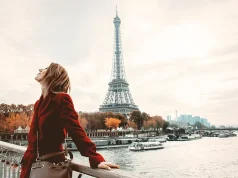
Munich, the vibrant capital of Bavaria, is a city that effortlessly marries the old with the new. Steeped in history and culture, Munich offers visitors a unique blend of medieval architecture, modern art, and timeless traditions. From the iconic Marienplatz to the sprawling English Garden, the city is a treasure trove of cultural experiences waiting to be explored.
Munich, known as München in German, is a city that exudes charm and character at every turn. Situated on the banks of the River Isar, north of the Bavarian Alps, Munich is the third-largest city in Germany and one of its most prosperous. It is a city where history is palpable, with its beautifully preserved old town and impressive landmarks. Yet, Munich is also a bustling metropolis, home to cutting-edge technology and a dynamic arts scene.
Visitors to Munich are often struck by its rich cultural tapestry, which is woven from centuries of tradition and innovation. The city’s heritage is evident in its grand palaces, historic churches, and world-class museums. Munich is also the heart of Bavaria, a region famed for its unique customs, cuisine, and, of course, beer. As you wander through the city’s cobbled streets, you’ll find that every corner has a story to tell.
Historical Landmarks
Munich’s historical landmarks are a testament to its long and storied past. One of the most iconic sites is Marienplatz, the city’s central square. Here, you can admire the stunning Neues Rathaus (New Town Hall) with its famous Glockenspiel, a clock tower that entertains onlookers with its charming mechanical figures. The nearby Frauenkirche, with its distinctive twin towers, is another must-see. This Gothic cathedral offers breathtaking views of the city from its south tower.
Another significant landmark is the Nymphenburg Palace, a sprawling Baroque palace that was once the summer residence of Bavarian monarchs. The palace is surrounded by beautiful gardens and is home to several museums, including the Museum of Man and Nature. For those interested in art, the Alte Pinakothek houses an impressive collection of European masterpieces, while the Pinakothek der Moderne showcases contemporary works.
Festivals and Traditions
Munich is a city that loves to celebrate, and its calendar is filled with festivals and events that showcase Bavarian traditions. The most famous of these is Oktoberfest, the world’s largest beer festival. Held annually from late September to the first weekend in October, Oktoberfest attracts millions of visitors from around the globe. The festival is a jubilant celebration of Bavarian culture, featuring traditional music, dance, and, of course, copious amounts of beer.
Another important event is Fasching, Munich’s version of Carnival, which takes place in the weeks leading up to Lent. During this time, the city comes alive with colorful parades, masquerade balls, and street parties. Christmas is also a magical time to visit Munich, as the city’s Christmas markets fill the air with the scent of mulled wine and gingerbread. The most famous market is Christkindlmarkt at Marienplatz, where you can find a variety of handcrafted gifts and festive treats.
Traditional German Outfit: The Charm of Lederhosen and Dirndls in Bavaria
One of the most charming aspects of Bavarian culture is the traditional German outfit. Lederhosen and Dirndls are not just costumes for tourists; they are an integral part of the region’s identity and are worn with pride during festivals and special occasions.
Lederhosen are leather shorts traditionally worn by men. They are often paired with rustic shirts, wool socks, and sturdy shoes. Originally designed for hard physical work, Lederhosen have become a symbol of Bavarian heritage. They come in various lengths, from knee-length to below the knee, and are often adorned with intricate embroidery and decorative suspenders.
Dirndls are the traditional dresses worn by women. A typical Dirndl consists of a bodice, blouse, full skirt, and apron. The style and design of Dirndls can vary widely, ranging from simple and practical to elaborate and ornate. The choice of Dirndl often reflects the occasion and the wearer’s personal taste. Modern Dirndls have become a fashionable item, and many women enjoy customizing their outfits with unique accessories.
Wearing these traditional outfits is a way for Bavarians to celebrate their cultural heritage. During Oktoberfest and other festivals, you’ll see locals and visitors alike donning Lederhosen and Dirndls, creating a vibrant and festive atmosphere. These garments are not only a nod to the past but also a living tradition that connects generations.
Bavarian Cuisine
No visit to Munich would be complete without indulging in Bavarian cuisine. The city’s culinary scene is renowned for its hearty and flavorful dishes. Traditional Bavarian fare includes classics such as Weisswurst (white sausage), Schweinshaxe (pork knuckle), and Leberknödel (liver dumplings). These dishes are often enjoyed with a side of Sauerkraut or Kartoffelsalat (potato salad).
Munich is also famous for its beer culture, and there’s no better place to experience this than in one of the city’s many beer halls and gardens. The Hofbräuhaus, a historic beer hall dating back to the 16th century, is a must-visit for any beer enthusiast. Here, you can enjoy a Maß (liter) of beer while soaking in the lively atmosphere. For a more outdoor experience, the English Garden offers several beer gardens where you can relax and enjoy a cold brew under the shade of chestnut trees.
The Scenic Beauty of Bavaria
Beyond the city limits, Bavaria’s scenic beauty beckons. Munich serves as an excellent base for exploring the surrounding countryside, which is dotted with picturesque villages, majestic castles, and pristine lakes. One of the most popular day trips is to Neuschwanstein Castle, a fairy-tale fortress perched on a rugged hill near Füssen. This 19th-century castle, commissioned by King Ludwig II, inspired the design of Disney’s Sleeping Beauty Castle and is one of the most photographed landmarks in Germany.
For nature lovers, the Bavarian Alps offer a wealth of outdoor activities. In the winter, the region’s ski resorts attract enthusiasts from around the world. In the summer, the mountains are a paradise for hikers and climbers. The Zugspitze, Germany’s highest peak, provides stunning panoramic views and is accessible by cable car.
Celebrating Munich and Bavaria
Munich and Bavaria offer a rich tapestry of cultural experiences that are sure to captivate any traveler. From the historic landmarks and hearty cuisine to the lively festivals and stunning landscapes, there is something for everyone in this charming region. Munich serves as a gateway to the wonders of Bavaria, providing a perfect blend of old-world charm and modern sophistication.
As you explore Munich, take the time to immerse yourself in the local culture. Enjoy a leisurely stroll through the city’s historic streets, savor a traditional Bavarian meal, and raise a glass of beer in one of its famous beer halls. Venture into the countryside to discover the fairy-tale castles and breathtaking scenery that make Bavaria so special. And don’t forget to experience the joy of wearing a traditional German outfit, embracing the spirit of Bavaria with every step.
Whether you’re drawn to Munich’s rich history, its culinary delights, or its vibrant festivals, you’ll find that this city and its surrounding region have a unique ability to make you feel at home. So, pack your bags and get ready to discover the heart of Bavaria, where every moment is a celebration of culture, tradition, and the timeless beauty of the German landscape.





